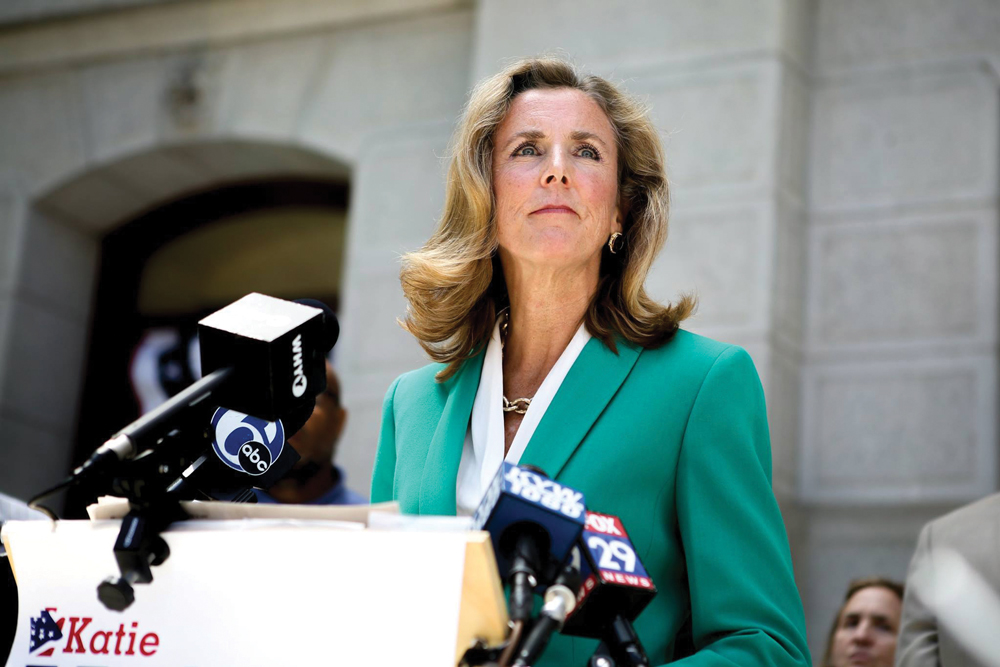The Senate, the Supreme Court and the soul of Pennsylvania are at stake
by Grid Editorial Board
America is suffering through an unprecedentedly debased presidential election, and many voters have vowed to stay home. While that is an understandable response, it is a dangerous proposition for progressive voters who live in Pennsylvania.
As many commentators have noted, the road that leads to 1600 Pennsylvania Ave. cuts through Pennsylvania: Our state’s 20 electoral votes are a critical purse for presidential candidates. While those electoral votes have not been awarded to a Republican candidate since 1988, and Hillary Clinton is in the lead, no lead could be large enough for comfort. A Trump presidency—when it comes to the environment, economy and American dignity both at home and abroad—would be, to use one of his favorite words, a disaster. A Trump Supreme Court nominee is unthinkable.
Second, the soul of our state is at stake as we choose a representative to the U.S. Senate, and every vote will count in this election.
Incumbent Pat Toomey (R) and challenger Katie McGinty (D) have been locked in statistical dead heat since August, but while their polling has been close, their positions on the environment and energy policy—as well as civil rights—could not be more different.
For the voter who cares about these issues, Katie McGinty is the only choice.
Pennsylvania is one of a handful of states in a position to flip a Senate seat from a Republican to a Democrat. Control of the Senate is critical, in part because it gives (potential Speaker of the House) Bernie Sanders, who believes that climate change is the biggest threat to America’s future, a better chance to implement his vision.
McGinty has proven for two decades that she will be an ally on that front. Her experience in Washington includes serving as Sen. Al Gore’s and President Bill Clinton’s top environmental aide, and as chair of the White House Council on Environmental Quality. She has also served in the Rendell administration as Pennsylvania’s secretary of the Department of Environmental Protection, where she championed aggressive alternative energy portfolio standards, courted renewable energy companies, invested in the Growing Greener grant program and in innovative projects through the Pennsylvania Energy Development Authority. She worked for more stringent fuel standards in cars, and lower mercury emissions from power plants.
Her degrees in chemistry and law make her uniquely qualified to employ science-based decisions on environmental policy. Her experience in the corporate sector working with the energy industry is a double-edged sword that gives her insight into the industry, but is also cause for concern and caution. Shortly after regulating these industries, McGinty held highly paid positions with energy companies whose portfolios include renewables but also coal, nuclear, oil and natural gas derived from fracking. Among other oil and gas contributions, she’s accepted money from Phil Rinaldi of Philadelphia Energy Solutions, Philadelphia’s biggest polluter.
Frackers, however, are overwhelmingly supporting Toomey, while environmental groups have endorsed McGinty because she has gone on record with positions on natural gas that include closing the “Halliburton loophole” to ensure that liquid used during the fracking process is regulated by the Clean Water Act, imposing a severance tax on drilling, regulating the industry and banning drilling on public land.
Grid agrees with former Senate candidate and Braddock, Pennsylvania, Mayor John Fetterman that McGinty should own up to her industry connections: Her overall environmental record is clear.
And the environment is just one of the major issues at play here. On a host of other progressive bellwethers, McGinty lands solidly on the right side of history: stronger gun control measures, protecting the reproductive rights of women, keeping strong consumer protection measures in place and ensuring that LGBTQ Americans have the same rights as everyone else.
In contrast, incumbent Pat Toomey—whose banking-industry-funded campaign war chest vastly outstrips McGinty’s—has an environmental voting record in Congress that has earned him a zero percent rating in 2015 from the League of Conservation Voters. His lifetime score is a meager 7 percent.
This year alone, Toomey has voted against closing the loophole that now excludes fracking wastewater from the Clean Water Act; voted for expediting permits for oil and natural gas drilling on public land (and to limit public input into the decision-making); against acknowledging the science of climate change; against extension of tax credits to incentivize renewable energy production; and for weakening protections for endangered habitat and wildlife.
If given the chance, Toomey would also vote to repeal the Affordable Care Act, and he staunchly opposes same-sex marriage. Toomey’s support of Donald Trump—despite
Trump’s clear disrespect of minorities, the disabled, Muslims, Gold Star families and women—is appalling.
Even after the repulsive video of Donald Trump bragging about sexually assaulting women with impunity, Pat Toomey—while he denounced Trump’s behavior—finally confirmed on Oct. 18 in Erie, Pennsylvania, that he would vote for him. At best, his decision is cravenly opportunistic. It’s also a clear signal to Pennsylvania voters that Toomey does not respect the values that many of us hold dear.
Finally, if you need another reason to elect Katie McGinty, Pennsylvania has never elected a female senator.
McGinty is more than qualified to serve in the U.S. Senate based on her experience alone, but Pennsylvania would benefit from electing its first woman to the Senate, and providing a better example for its youth by demonstrating that one’s gender should not be a barrier to representing our state.
Katie McGinty should be Pennsylvania’s next senator.








